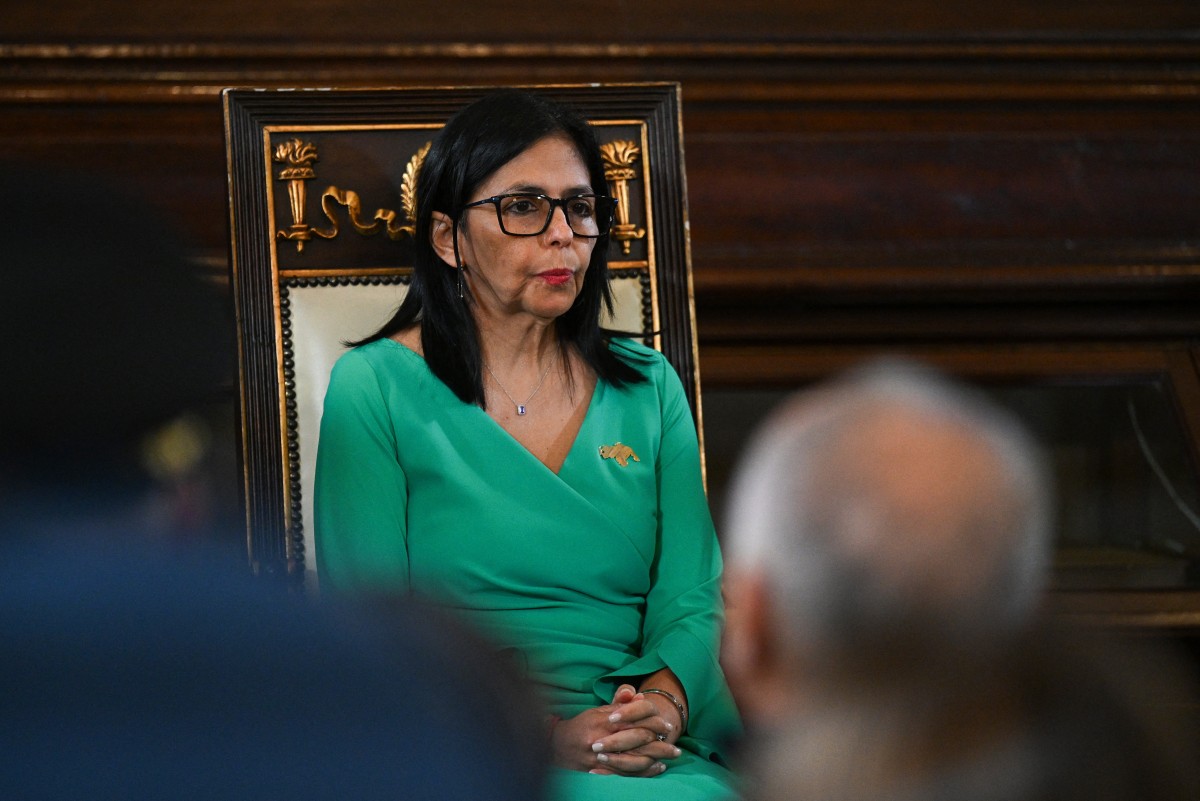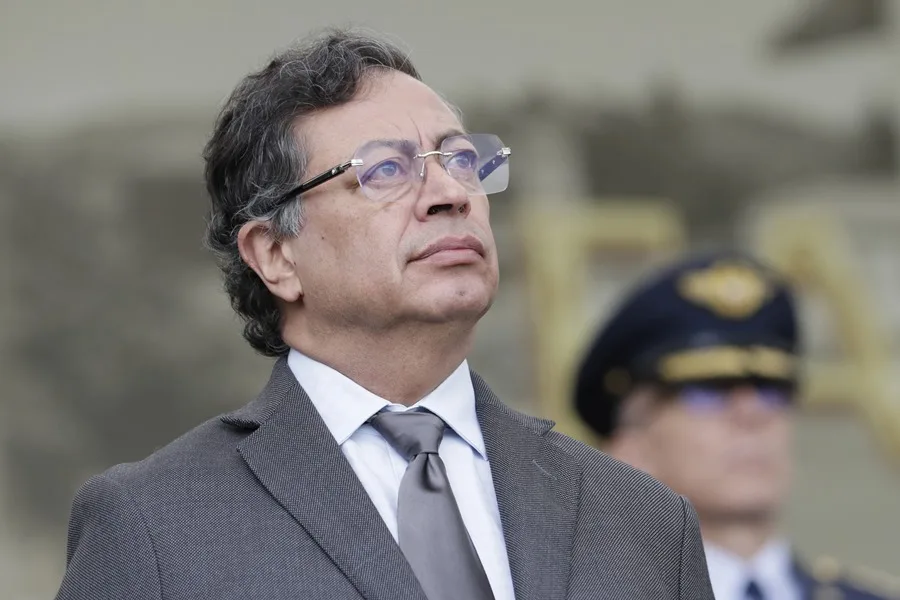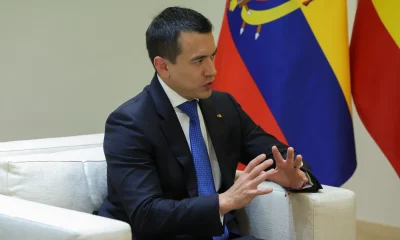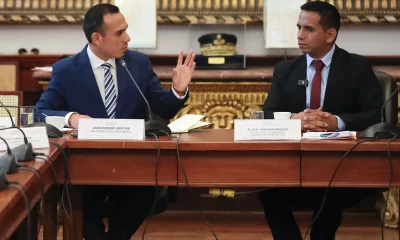International
IMF pulls out of Brazil after economy minister’s ire

AFP
The International Monetary Fund said Thursday it will close its Brazilian office, a day after receiving harsh criticism from Economy Minister Paulo Guedes over its forecasts for Latin America’s biggest economy.
The IMF said it would close its office in Brasilia when the current country representative’s mandate expires on June 30, 2022.
The move came after Guedes, far-right President Jair Bolsonaro’s ultra-liberal economy guru, said the IMF was overly pessimistic in its forecasts on Brazil and was no longer welcome.
“They can go take a walk,” he said Wednesday.
“They were here forecasting (Brazil’s economy) would contract by 9.7 percent (in 2020) and Britain’s would contract by four percent. In the end, we contracted by four percent, and Britain by 9.7 percent,” he said.
He also accused IMF officials in the country of being more interested in “football and feijoada” — a meat-and-bean stew that is one of Brazil’s most famous attractions — than in helping the economy.
The IMF opened its office in Brazil in 1999, when the country turned to the Washington institution for financing to help get out of an economic crisis.
That program ended in 2005.
The IMF said it had maintained the office to “facilitate dialogue,” but Guedes said that was no longer needed.
“They’ve been here long enough. There was a lot of imbalance in the relationship,” he said.
Guedes and Bolsonaro have been at pains to shore up confidence in Brazil’s recession-hit economy as the president heads toward elections next October with his popularity at an all-time low.
Bolsonaro has alarmed investors by maneuvering to break Brazil’s constitutional spending cap in order to fund big social spending, a move condemned as economic populism by critics.
Guedes insists the pessimism is unwarranted and that the Bolsonaro administration will leave a stronger economy than it inherited.
International
Federal immigration agents kill man in Minneapolis, sparking protests and outrage

Federal immigration agents shot and killed a 37-year-old Minneapolis man during an operation on Saturday, authorities confirmed, sparking new protests and deepening outrage over federal immigration enforcement in the city.
The victim, identified as Alex Jeffrey Pretti, was a U.S. citizen and intensive care nurse who worked at a Veterans Affairs hospital and was widely respected in his community, according to colleagues and news reports.
Officials said the shooting occurred during a targeted immigration raid in south Minneapolis. The Department of Homeland Security (DHS) described the incident as an act of self-defense by agents who believed the man posed a threat.
However, videos reviewed by multiple outlets and eyewitnesses show Pretti holding a phone and not displaying a weapon before being pepper-sprayed, tackled by agents and then shot multiple times, raising serious questions about the official account.
The killing comes amid a broader federal immigration enforcement operation in the city and follows another controversial shooting in early January in which Renée Good, a 37-year-old U.S. citizen, was fatally shot by an ICE agent, leading to widespread protests and criticism of federal tactics.
International
Delcy Rodríguez seeks political agreements after Maduro’s ouster

Venezuela’s interim president, Delcy Rodríguez, on Saturday called for “reaching agreements” with the opposition to achieve “peace” in the country, which the United States says it now controls following the military operation that removed President Nicolás Maduro from power.
Rodríguez, who previously served as Maduro’s vice president, assumed interim leadership after the leftist leader was captured on January 3 during a military incursion that left nearly 100 people dead.
In her first public statements since taking office, Rodríguez signaled a shift in the strained relationship between Caracas and Washington, while also committing to the release of a “significant number” of political prisoners.
“There can be no political or partisan differences when it comes to the peace of Venezuela,” Rodríguez said during an address in the coastal state of La Guaira, broadcast on state television VTV.
“From our differences, we must speak to one another with respect. From our differences, we must meet and reach agreements,” she added.
The day before, Rodríguez instructed the head of Parliament — her brother Jorge Rodríguez — to convene talks with various political sectors in the country aimed at achieving “concrete and immediate results.”
International
Bogotá and Quito Seek Dialogue After Tariffs and Power Cut Escalate Tensions

Bogotá and Quito will hold an emergency bilateral summit next week amid recent developments that have strained relations between the two countries.
Tensions escalated this week after Ecuadorian President Daniel Noboa unexpectedly announced a 30% tariff on Colombian imports. Colombia responded with a reciprocal measure, imposing the same tariff on around 20 Ecuadorian products and suspending electricity exports to Ecuador.
Aware that electricity imports are critical to easing Ecuador’s recent energy crises, Quito further imposed a 30% tariff on the transportation of Colombian oil through its territory.
However, recent statements from the Ecuadorian government suggest that dialogue between the two sides has intensified in recent hours. Ecuador’s Minister of Foreign Affairs, Gabriela Sommerfeld, confirmed that active conversations are under way.
In Colombia, segments of the business sector have welcomed the prospect of negotiations. The National Business Council (Consejo Gremial Nacional, CGN), for instance, urged both governments to restore commercial relations, warning that the dispute “puts jobs and regional economic stability at risk.”
-

 International4 days ago
International4 days agoMexican influencer “La Nicholette” kidnapped in exclusive area of Culiacán
-

 International4 days ago
International4 days agoTrump to invite Venezuela’s interim president Delcy Rodríguez to Washington
-

 Central America4 days ago
Central America4 days agoMazatenango Carnival cancelled amid State of Siege in Guatemala
-

 International4 days ago
International4 days agoMajor winter storm to blanket U.S. and Canada with snow, ice and arctic cold
-

 International4 days ago
International4 days agoMarkets rise as Trump halts Europe tariffs and floats Greenland agreement framework
-

 International4 days ago
International4 days agoColombia slams Ecuador’s 30% tariff as ‘economic aggression’
-

 International4 days ago
International4 days agoTrump announces preliminary NATO agreement on Greenland, suspends tariffs on Europe
-

 International4 days ago
International4 days agoVenezuela’s interim president predicts 37% increase in revenues for 2026
-

 International4 days ago
International4 days agoJapan reopens Kashiwazaki-Kariwa Plant despite public concerns
-

 Internacionales2 days ago
Internacionales2 days agoMajor winter storm threatens “catastrophic” ice and snow across much of the U.S.
-

 International2 days ago
International2 days agoTrump-Era Defense Plan Prioritizes Border Security and Scales Back Global Commitments
-

 International4 days ago
International4 days agoFour minors killed in deadly clash between FARC dissidents in Colombia’s Amazon
-

 International2 days ago
International2 days agoGuatemala considers sending high-risk gang members to military prisons
-

 Central America2 days ago
Central America2 days agoGuatemala’s president rules out negotiations with inmates after prison riots
-

 International4 days ago
International4 days agoJosé Jerí claims destabilization attempt after videos of secretive meetings surface
-

 International2 days ago
International2 days agoBogotá and Quito Seek Dialogue After Tariffs and Power Cut Escalate Tensions
-

 International16 hours ago
International16 hours agoDelcy Rodríguez seeks political agreements after Maduro’s ouster
-

 International2 days ago
International2 days agoRights group says over 5,000 killed in Iran protests, mostly civilians
-

 International16 hours ago
International16 hours agoFederal immigration agents kill man in Minneapolis, sparking protests and outrage


























